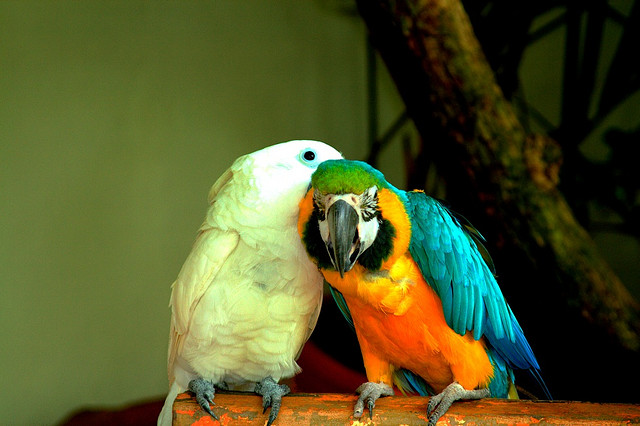The Bird Whisperer! October 12, 2013
Author: Beach Combing | in : Medieval , trackbackHorse whisperers are there in fiction and film and perhaps in fact and Beach previously had fun with East Anglian horse whispering (with many reader’s emails elucidating). But what about bird whispering? What could you possibly do to calm a bird? This blogger would find it easier to relate to a reptile or an insect than a squawking thing with wings: birds are so alien to humans. But consider now this medieval account. It was written on the continent sometime in the second decade of the thirteenth century by an Englishman, Gervase. Note that Gervase claims to have actually seen the auceps or fowler work his magic.
When we relate these things and other like them to Your Highness, most serene Prince, all we are doing is lightening the burden of care which you have on your mind by means of a pause for relaxation. They may be dismissed as idle chatter, but they ought to be given a hearing, because they can provide no trifling instruction or warning with regard to many things. We ourselves witnessed that the renowned king of Scots, William of blessed memory (whom your grandfather, the excellent king of the English, Henry the Elder, conquered when he rebelled, held captive for a long time, and subjected once more to his rightful sway), kept a fowler (auceps) with him, who used to catch cranes or any other birds of the air by a snare of words alone (uerborum laqueo): at the mere uttereance of his words, they fell to the ground.
Cum hec et his similia tue celsitudini, princeps serenissime, memoramus, nichil aliud agimus nisi quod tue sollicitudinis seria ociorum parentesi temperamus, que licet uanitati linguose possint ascribe, sustinenda tamen sunt ex eo quod non modicum ad multa prestare possunt doctrinam aut cautelam. Uidimus equidem illustrem sancte memorie regem Scottorum Guillelmum (quem auus tuus, excellentissimus rex Anglorum Henricus uetustus, rebellem uicit et captum diu tenuit, iterumque debite sue dicioni subiecit) quendam secum habuisse aucipitem, qui solo uerborum laqueo grues aliasue quaslibet aereas aues capiebat, ad pronunciationem uerborum suorum prostratas.
Gervase packs his writing full of demonstrably improbable facts: he is the closest we have to a medieval Fortean. But if his filters were not always very efficient then there is no question that he was honest and well intentioned as an eye-witness. So what the hell is going on here? At first glance a bird whisper should be a man who goes up to a tree and talks a bird down and onto his hand, and then presumably into the pot: note the reference to the ‘snare’ or noose of words. But Gervase’s words also seem to suggest something more like a sonic weapon with the bird falling to the ground from the air, already dead! Neither seem very probable and yet we have an intelligent and interested eye-witness. So what the hell is happening here?! Drbeachcombing AT yahoo DOT com
Just noted in the textual apparatus that anceps = falconer. Has there been a copying error here? But even if so would that get us any closer to a solution?
17 Oct 2013: JT writes in on bird whispering: was it Francis of Assisi that preached to the birds? if you google “bird whisperer”some amazing bird trainers pop up a friends father stands in his backyard, whistles scatters bits of seed around and he gets birds using him as a perch,letting him pat and scratch them-some of them even pluck hairs from his head,presumably to use as nest material.He says the trick is to not look them directly in the eye you can calm a chicken down by picking it up by the legs(it gets stunned by the blood rushing to its head) and covering its eyes- but I think this is a bit like catching a chicken by putting salt on its tail.Just in case you are interested- fish can also be calmed down by holding them upside down and covering their eyes.*** Then The Verb To Do writes: I might be making the text fit my own facts, but I’m reminded of trout tickling which my grandfather told stories of doing (complete with a long coat with a hidden pocket), and bird “hypnosis”. I’ve seen my dad hypnotise a budgerigar to the point where it was lying flat on its back in the palm of his hand, so I’m wondering if the “fell to the ground” is a form of playing possum.’ Thanks JT and Verb!
23 Nov: Karen writes: This one makes me think of my dear Dad: gone now to the other side. He was an animal-whisperer, all kinds of animals. He used to “call-up” whip-poor-wills and/or bob-white by whistling their mating calls. Funny thing is, once they got close he would stop whistling and they would keep on coming to him, often to within a few feet. I can still see them cocking their heads to look at him, and not flying away in fear. I learned to recognize them by this method: I also learned to be very still and quiet! Wild abandoned young rabbits, motherless baby raccoons, and every sort of stray abandoned or feral pet would simply come to him, without any coaxing on his part. Sometimes he would not see them until they were at his feet. He would always care for them until they could manage on their own: never caged them, didn’t need to. His hunting dogs (yes, he was a hunter!) would never bother any animal Dad favored. Now I am nothing compared to Dad, but strangers who drop the leash of their dogs might find them running to me to be petted… Thanks Karen!



